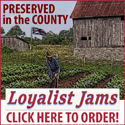Residents urged to keep pets away from wild birds to reduce transmission of avian flu
Administrator | Apr 06, 2023 | Comments 0
Hastings Prince Edward Public Health (HPEPH) is urging residents to ensure pets do not come into contact with wild birds or other potentially sick animals after a domestic dog in the Oshawa region was found to have been infected with Avian Influenza (H5N1) from chewing on a wild goose.
The dog developed clinical signs of avian flu and later died.
Dr. Ethan Toumishey, Medical Officer of Health and CEO at HPEPH, in a media release, states Avian Influenza usually spreads among wild bird populations but can sometimes affect commercial poultry or other animals such as dogs when they come into contact with infected animals.
He states it’s rare for avian flu to spread to people, with most human cases resulting from close contact with infected poultry. To date, there have been no confirmed cases of humans being infected with the current Avian Influenza strain (H5N1) in Canada. However, because it is not known if or how animals infected with Avian Influenza H5N1 can transmit the virus to people, HPEPH says it’s important to ensure children and household pets do not have contact with wild birds or other potentially sick animals.
To reduce the risk from avian flu, HPEPH is advising the public to:
Avoid direct contact with wild birds and other wild animals.
Observe them only from a distance.
Contact your local municipality and the Canadian Wildlife Health Cooperative online or by calling 1-800-567-2033 to report ill or dead birds/animals.
If contact with a dead bird or animal is unavoidable, wear gloves, place the bird/animal in a doubled plastic bag and tie it closed. Avoid contact with blood, body fluids and feces. You should then wash your hands with soap and warm water.
Wash hands thoroughly with soap and water after touching any bird feeders, bird baths or any potentially contaminated areas.
Consider removing backyard bird feeders and bird baths.
If they can’t be fully removed, place them as far from family pets as possible and clean with a bleach and water solution (one-part bleach to nine-parts water) at least once every two weeks.
Keep family pets away from birds and fecal matter. Keep cats indoors and dogs on a leash to limit the potential for an encounter with an infected bird.
Do not attempt to rescue birds in distress, especially on any bodies of water.
If you become ill with influenza symptoms (e.g., fever, cough, sore throat) within 10 days after handling wild birds or other wildlife, see your health care provider. Inform your healthcare provider that you have been in contact with wildlife.
Additional information about avian flu is available through the Ministry of Health, the Public Health Agency of Canada, the Canadian Wildlife Health Cooperative, and Hastings Prince Edward Public Health.
Filed Under: News from Everywhere Else
About the Author:
































